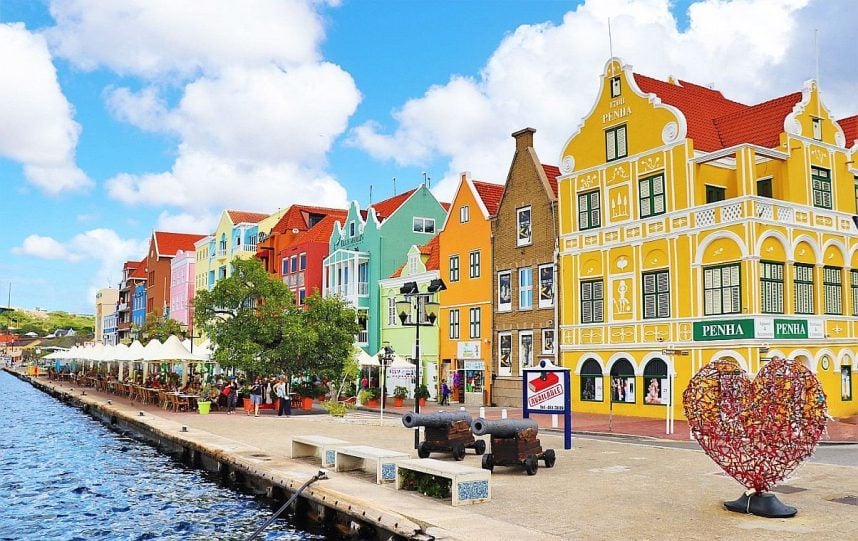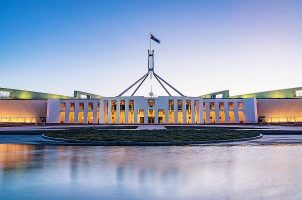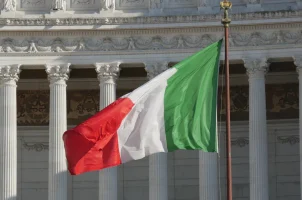Curaçao Moves Closer to iGaming Overhaul as Reforms Head to Parliament
Posted on: December 21, 2023, 07:47h.
Last updated on: December 21, 2023, 10:36h.
Curaçao is at a critical juncture with its National Ordinance for Games of Chance (LOK, for its Dutch acronym). The comprehensive gambling reform bill has reached Parliament for its approval, and promises to transform the island’s gaming industry, which has historically been highly flexible and controversial.

The GCB, the regulatory body overseeing the gambling sector, has already taken significant steps toward implementing the LOK. In September, it opened its portal for license renewals, allowing existing operators to transition to the new framework.
Submissions for license renewals began on November 1, marking the official start of the process. The LOK’s enactment could revitalize the sector, enhance player protection, and improve Curaçao’s position as a leading gaming jurisdiction. In parallel, the Ministry of Finance has issued notices to current licensees outlining the key milestones for transitioning to the LOK regime.
What’s Next for Curaçao
One of the most crucial deadlines is March 31, 2024, by which time existing sub-licensees must register their sub-licenses and apply for direct licenses. Failure to meet this deadline will result in the loss of operating rights beyond March 31.
From March 31 onwards, the transition to the new framework under a provisional license will be exclusively available to direct license holders. Applications already in progress will continue their processing, ensuring a smooth transition for operators that have initiated the process.
Operators wishing to continue operating, but that haven’t applied for a direct license by March 31, will only be permitted to operate under their sub-license until the expiration of the master license or the LOK’s enactment. Following this, they will have to apply for a license under the revised legislation.
To further facilitate the transition, the LOK mandates the use of a digital seal by licensees on their websites. These seals will be issued by the GCB and may be authorized for applicants awaiting license approval, providing clear and transparent information to players about the legitimacy and compliance of gambling operators.
A significant aspect of the LOK reform is the introduction of distinct fees for B2B and B2C licenses. While the structures are largely similar, B2B licenses won’t incur monthly fees, unlike B2C licenses, which will have both an annual and monthly fee component.
The application fee for B2C licenses will be ANG9,000 ($5,000), accompanied by one-time due diligence fees ranging from ANG250 to ANG500 (US$137.38 to $274.75) per person. The cost will depend on the individual’s role within the company.
The annual fee for B2C licenses will be ANG48,000 (US$26,376), while the monthly fee will be ANG4,000 (US$2,198). Operators must also pay an additional ANG500 per year per domain, with no limit on the number of domains.
The Curaçao Parliament hasn’t indicated when it will finish reviewing the reforms or what action it might take.
A Smooth Transition
To support operators during the transition, those holding licenses under the current master license system will be exempt from paying the annual fee in the first year. There will also be a reduction in the monthly fee to ANG4,000 starting from the subsequent year, replacing the current rate of ANG7,000 (US$3,846.50).
Lawmakers and regulators designed the fee structures to balance the need for revenue generation while maintaining a competitive gambling market. Additionally, according to previous government remarks, they reflect the Curaçao government’s commitment to promoting responsible gambling practices and ensuring the effective enforcement of player protection measures.
The LOK’s enactment holds immense potential for Curaçao, positioning the island as a leading destination for responsible and regulated online gambling. By embracing the LOK’s reforms, Curaçao likely can improve its reputation as a trusted and reputable gaming jurisdiction. This could ultimately have significant implications for the legitimacy of operators looking to enter new global markets.
Related News Articles
Norway to Protect iGaming Monopoly Through Mandatory DNS Blocking
Australia Advances Ban on Use of Credit Cards, Crypto in Online Gambling
Italy’s Planned iGaming Reforms May Violate EU Laws, Association Claims
New Gambling Regulations Arrive in Galicia, Spain
Most Popular
FTC: Casino Resort Fees Must Be Included in Upfront Hotel Rates
Genovese Capo Sentenced for Illegal Gambling on Long Island
NBA Referees Expose Sports Betting Abuse Following Steve Kerr Meltdown
UPDATE: Former Resorts World & MGM Grand Prez Loses Gaming License
Most Commented
-
UPDATE: Whiskey Pete’s Casino Near Las Vegas Closes
— December 20, 2024 — 30 Comments -
Caesars Virginia in Danville Now Accepting Hotel Room Reservations
— November 27, 2024 — 9 Comments -
UPDATE: Former Resorts World & MGM Grand Prez Loses Gaming License
— December 19, 2024 — 8 Comments -
FTC: Casino Resort Fees Must Be Included in Upfront Hotel Rates
— December 17, 2024 — 7 Comments
















No comments yet